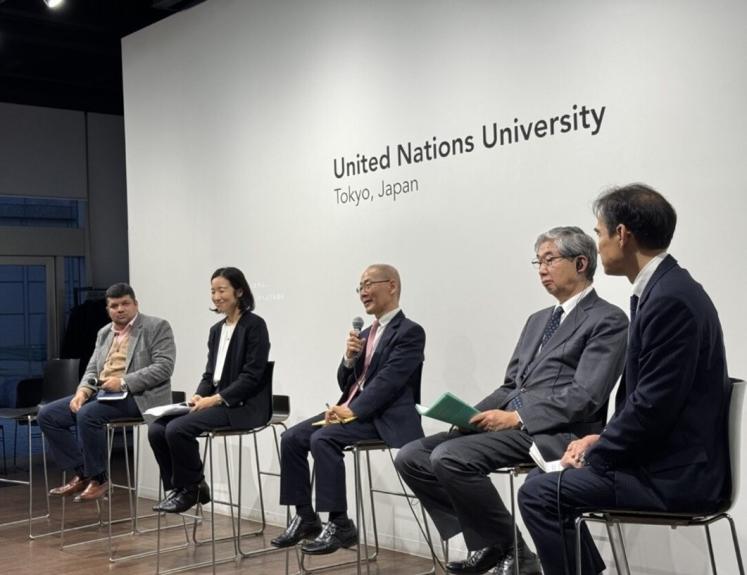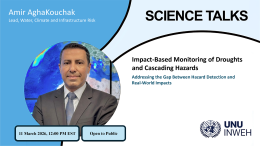On 15 December 2023, UNU-IAS organized an event discussing the outcomes of the 2023 UN Climate Change Conference (UNFCCC COP28); UNU-IAS contributions and the current status of capacity building efforts for implementing the Paris Agreement. The event highlighted the UNU-IAS Postgraduate Degree Specialization on the Paris Agreement (SPA), which was launched in September 2023, and other opportunities for meaningful participation of youth in the international policymaking process.
In opening remarks, Shinobu Yume Yamaguchi (Director, UNU-IAS) emphasized the critical importance of developing and enhancing capacities to overcome knowledge and skill gaps, which were essential for implementing the Paris Agreement. She introduced plans to scale up the SPA, which had been announced at a COP28 press conference. The initiative exemplifies the institute’s innovative approach to education and capacity building, which is policy-oriented and closely linked to interdisciplinary research.
In a keynote presentation, Hoesung Lee (Special Ambassador for Carbon Free Energy, President of CF Alliance; Former Chair, IPCC), noted that COP28 had achieved a historic agreement to transition away from fossil fuels. He highlighted the alignment of this agreement with the findings of the recent IPCC Sixth Assessment Report, reinforcing the importance of continued efforts to pursue the 1.5°C target. Dr Lee emphasized the importance of mobilizing all decarbonization technologies, including renewable energy, hydrogen and nuclear power, as well as carbon capture, utilization, and storage — especially in carbon-intensive industries.
In the first panel discussion, Akio Takemoto (Head of Programme and Administration, UNU-IAS), presented the key outcomes of COP28 and engagement by UNU-IAS. The discussion focused on potential solutions to emerging issues as climate change continues, and the shift towards decarbonization. Panelists stressed the importance of science-based policymaking, strengthening partnerships between developed and developing countries, engaging multiple stakeholders — including local governments, the private sector, and civil society — and synergies across various sectors.
In a second panel discussion, Mei Maruyama (Programme Corodinator, UNU-IAS) highlighted the expanded participation of youth at COP28 and introduced UNU-IAS initiatives for youth empowerment, including a plan to scale up the SPA. The discussion, moderated by Naoki Torii (Programme Coordinator, UNU-IAS), emphasized providing equal opportunities to youth and outlining paths for career development, the value of knowledge gained through practical experiences and the need to go beyond facilitating youth participation. He also stressed the need to develop a framework that enables active integration of the youth in decision-making processes. The event concluded with a summary address by Yasushi Katsuma (Academic Programme Advisor, UNU-IAS).



